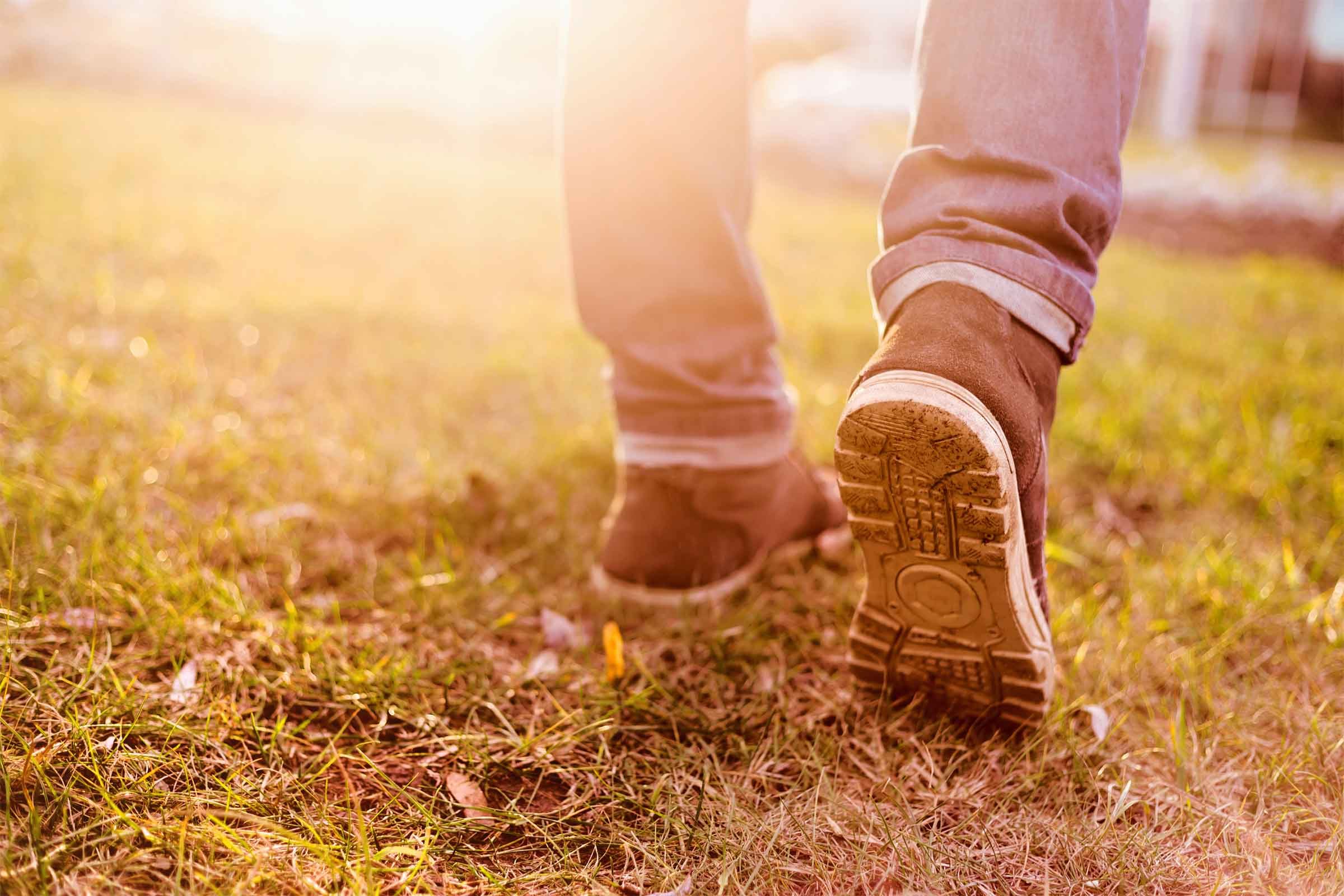
You skipped exercise today
If you’re reading this in the middle of the day, here’s the case for going on an evening stroll after dinner. In one study, sedentary older adults with insomnia who engaged in aerobic exercise reported improvements in sleep quality and duration, as well as a reduction in depressive symptoms and daytime sleepiness. The best time to work out for a better night’s sleep might be early morning, according to research from Appalachian State University. Study subjects ages 40 to 60 who walked on a treadmill at 7 a.m. slept longer and had more beneficial sleep cycles than when they exercised during 1 p.m. or 7 p.m. sessions, according to the study results. Here are more things you can do all day long to sleep better tonight.
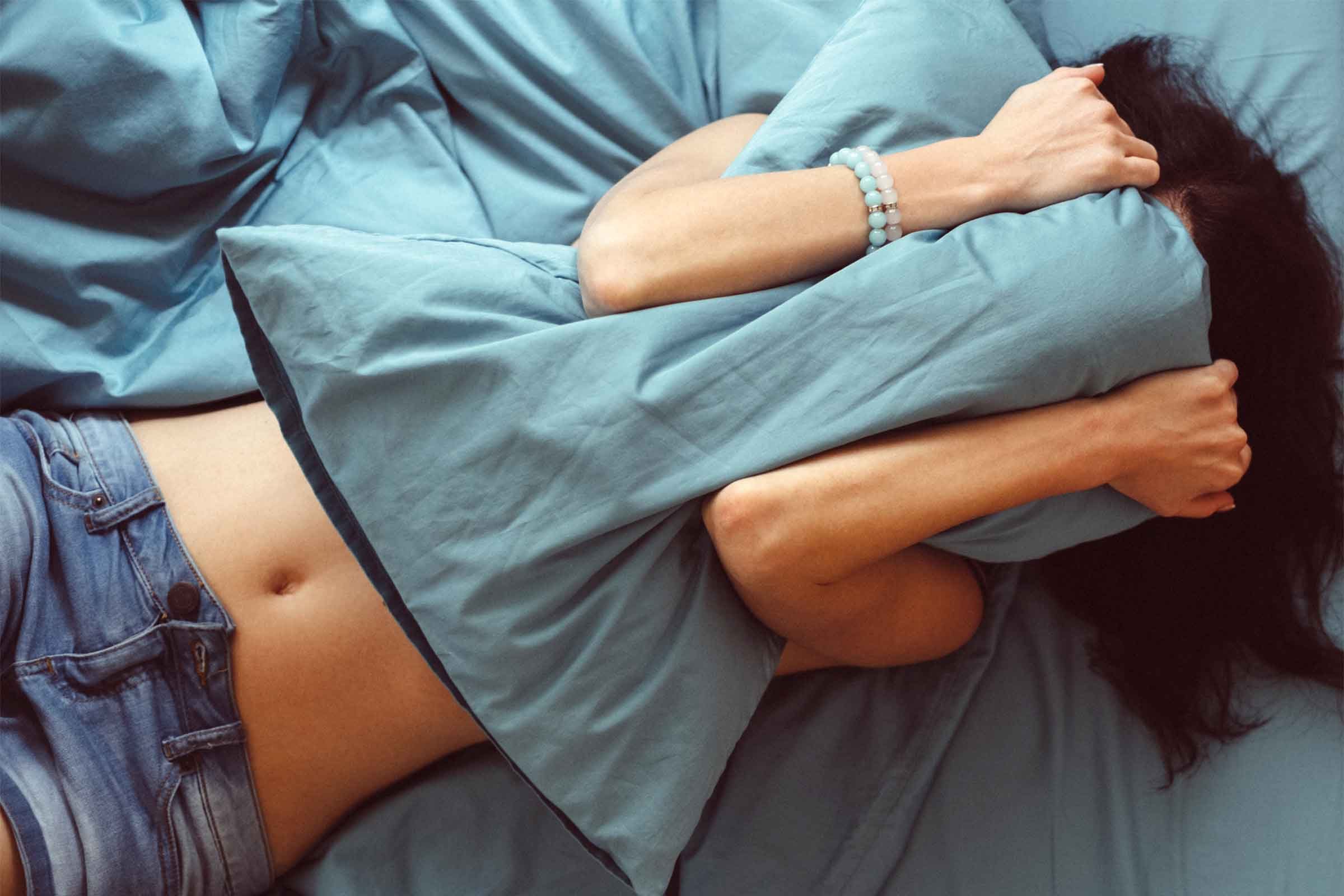
Your hormones are all over the place
Some women experience sleep disturbances in the days leading up to their periods, while others toss and turn during their cycle. It could be due to headaches, cramps, or even a higher body temperature (your core temperature rises almost half a degree after ovulation and most people tend to fall asleep as their body temperature drops). However, if you experience these symptoms during your period, you shouldn’t ignore them. If you’re approaching perimenopause or are in menopause, you may have experienced problems falling asleep or staying asleep; you can also wake up with hot flashes. Blame shifting hormone ratios, like the decrease of estrogen and progesterone, which is a sleep-promoting hormone, according to the National Sleep Foundation. To combat some of these sleep issues, keep your bedroom at 60 to 67°F and give yourself time to relax as part of your bedtime routine. If cramps are making you feel anything but tranquil, consider taking ibuprofen or naproxen, and do some breathing exercises while using a hot rubber water bottle or compress on your abdomen.
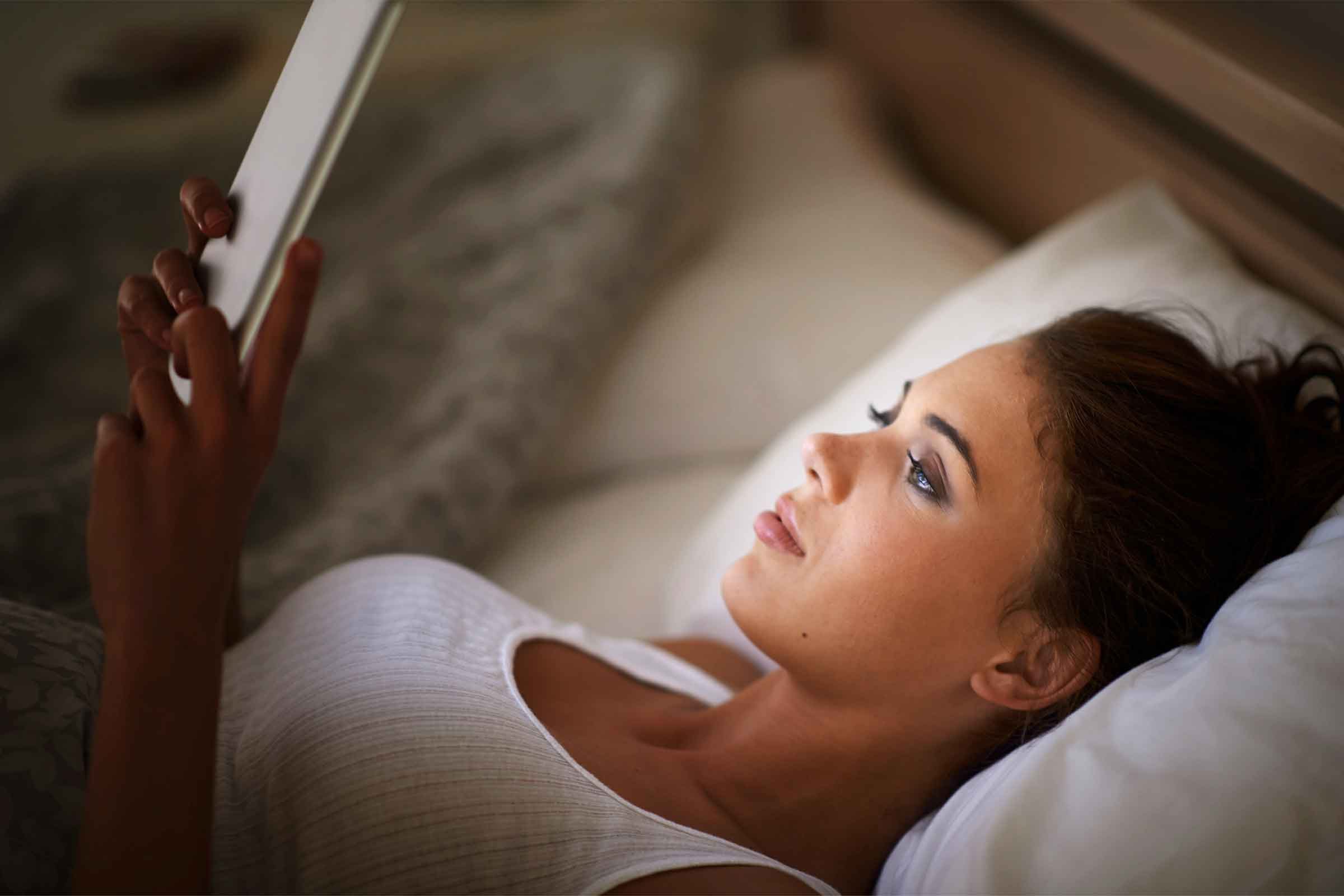
You scroll through social media feeds before bed
Sure, you’re telling yourself that you’re “relaxing” and “unwinding” by seeing what friends and family are up to on social media, but being on your smartphone (or laptop, desktop, or tablet) can cause sleep problems. The blue light those devices emit is likely to suppress production of melatonin, the hormone that tells your body it’s time to sleep. Research is also discovering that blue light can mess with your circadian rhythm, the mental, physical, and behavioral changes in your body that follow a 24-hour cycle, according to the National Institute of General Medical Studies. Try to avoid looking at bright screens two to three hours before bedtime. If you think you will forget this tip, consider setting an alarm on your phone to go off two hours before bed, reminding you to put devices away. (These are the 13 secrets to better sleep doctors want you to know.)
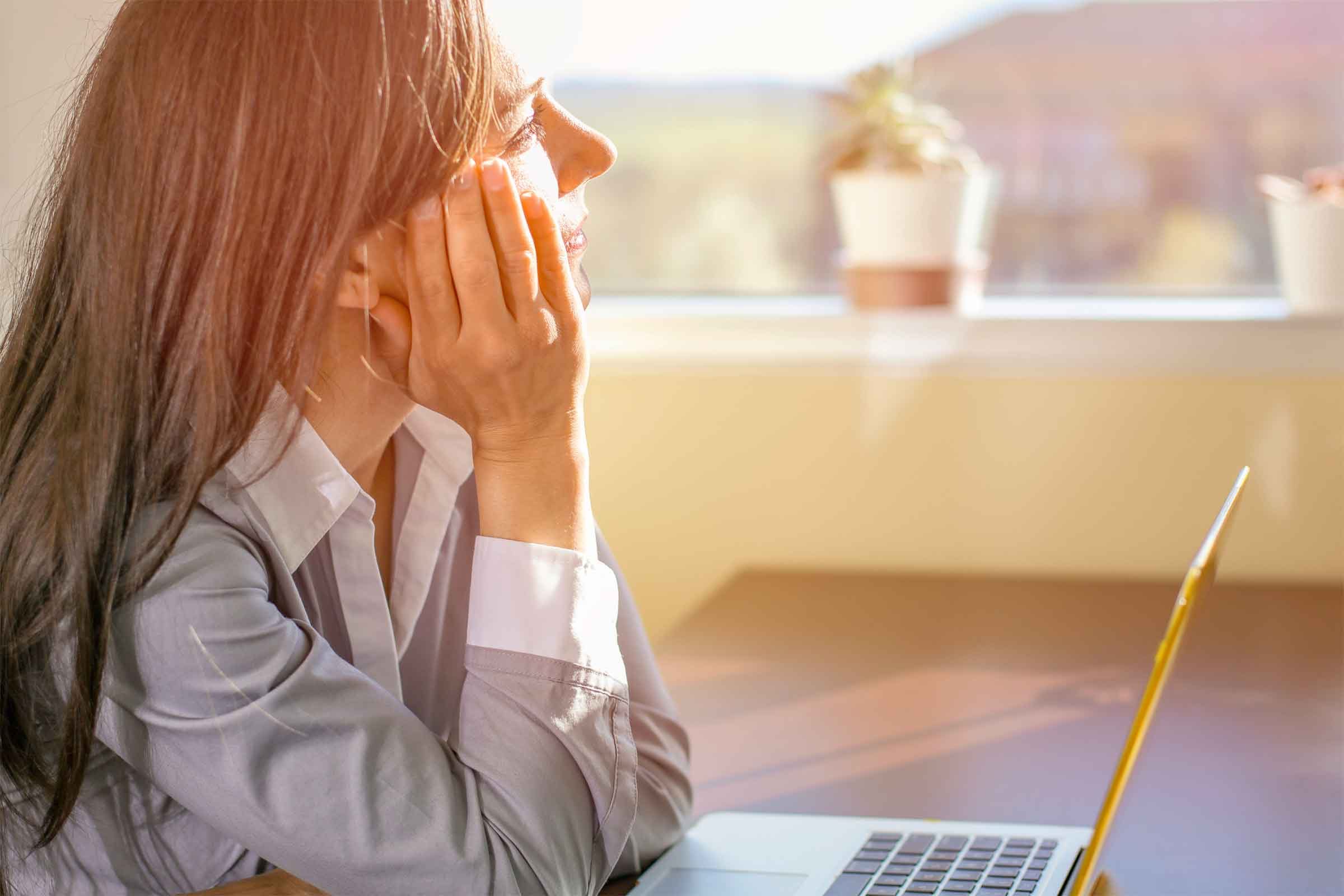
You’ve barely seen the sun today
Exposure to bright light during the day (even through a window) can enhance your ability to sleep at night, according to Harvard Health Publications. If it’s dark and gloomy where you live due to the season or weather, or you’re stuck in a windowless office under fluorescent lights, consider using a light box on your desk to increase the level of light flow you’re getting, so you’re setting yourself up for a better night’s rest. Here are other surprising benefits of exposure to the sun.
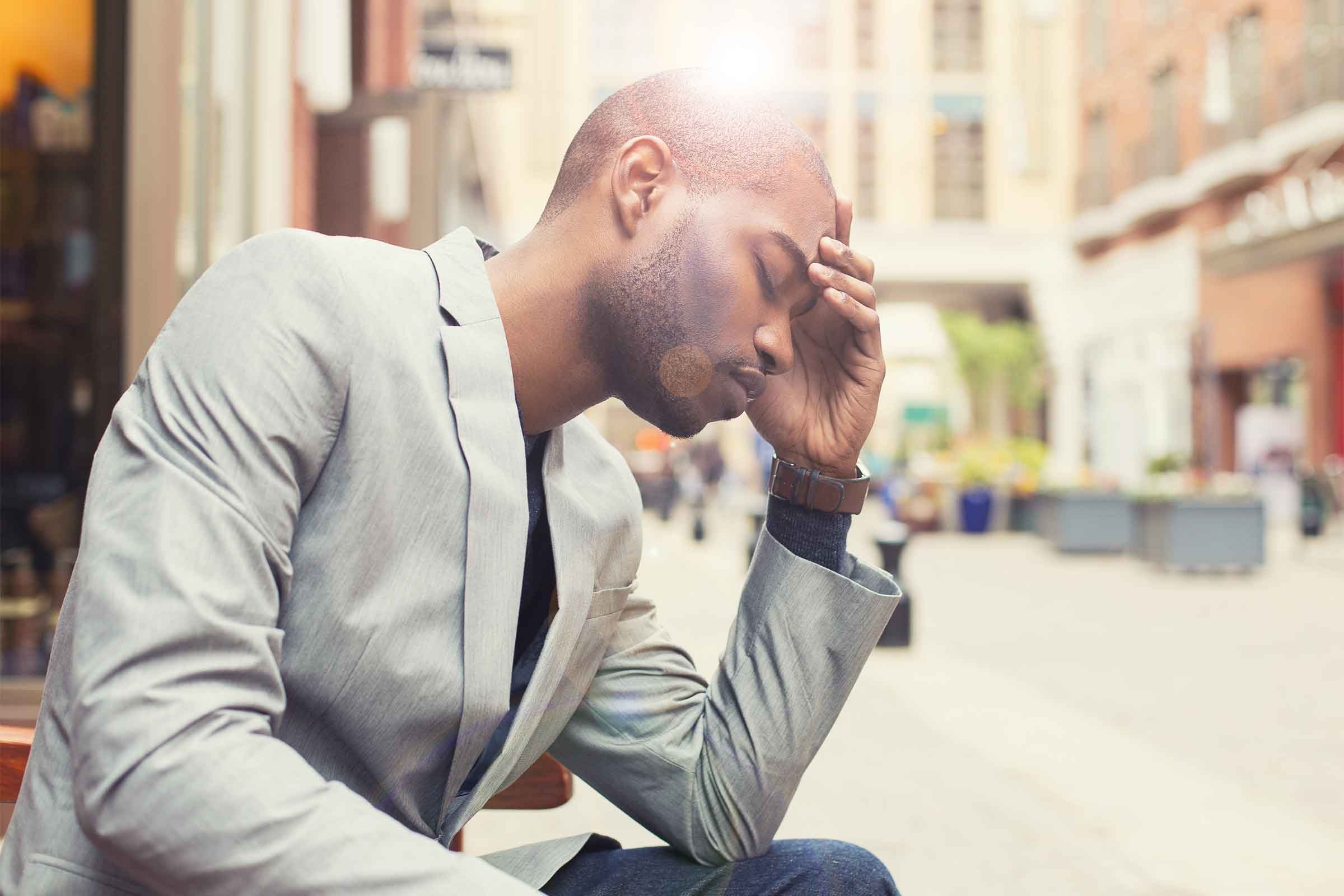
You’re stressed to the max
When you’ve had that kind of day where you go from one meeting and obligation to the next, it should be no surprise that you can’t fall asleep as soon as you flop into bed. Even if you’re exhausted, leftover feelings of anger, stress, and anxiety surging through your system can cause your heart rate to speed up and increase brain arousal, two physiological factors that don’t promote sleep. According to a 2013 Stress in America report, 37 percent of adults report fatigue or feeling tired because of stress and 43 percent report that stress has caused them to lie awake at night in the past month. To better prepare your body and mind for sleep, establish a consistent, relaxing bedtime routine and try to stop all stress-inducing activities a few hours beforehand. (We know: easier said than done.) Try some gentle stretching next to your bed, listen to a guided meditation, avoid looking at the clock, and keep all physical reminders of work or aggravating situations out of your bedroom, suggests the Anxiety and Depression Association of America. Don’t miss these natural anxiety remedies.
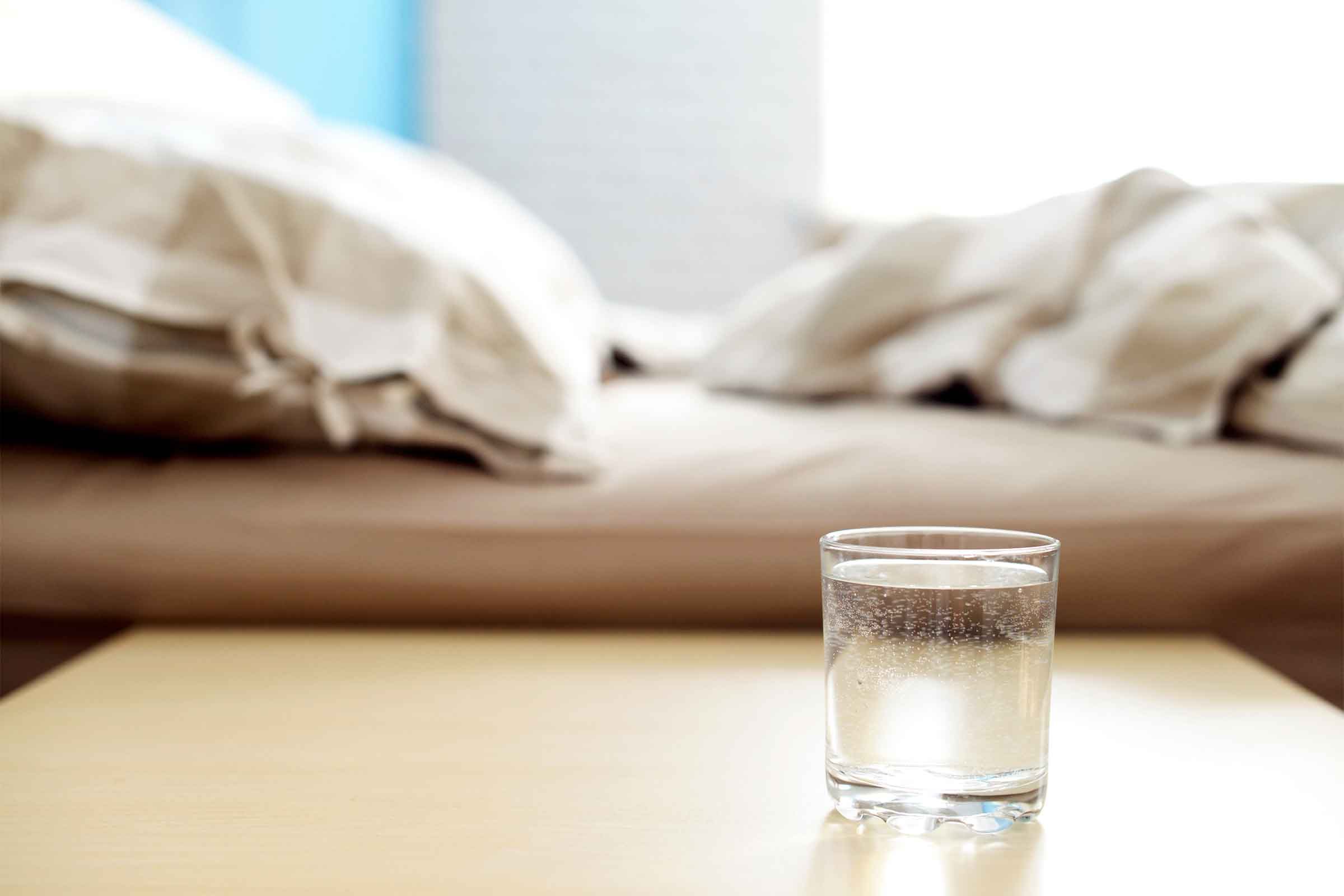
You chugged a ton of water late at night
Realized right before bed that you’re really thirsty? Drinking too many fluids before going to sleep may cause you to wake up if you have a weak bladder or prostate issues. Try not to drink too many fluids before bed, go to the bathroom before you sleep, and if you wake up in the night thinking you have to urinate, ask yourself if you really have to get up. Sometimes people wake up from sleep apnea or insomnia issues and think they should get up and go to the bathroom, says Michael Breus, PhD, a California-based board-certified sleep specialist and author of The Sleep Doctor’s Diet Plan: Lose Weight Through Better Sleep. This will cause your body to be even more awake. If you need to make a middle-of-the-night bathroom break, rely on nightlights so a harsh light doesn’t suppress melatonin and disrupt your ability to fall back asleep. These are silent symptoms of sleep apnea you might be ignoring.
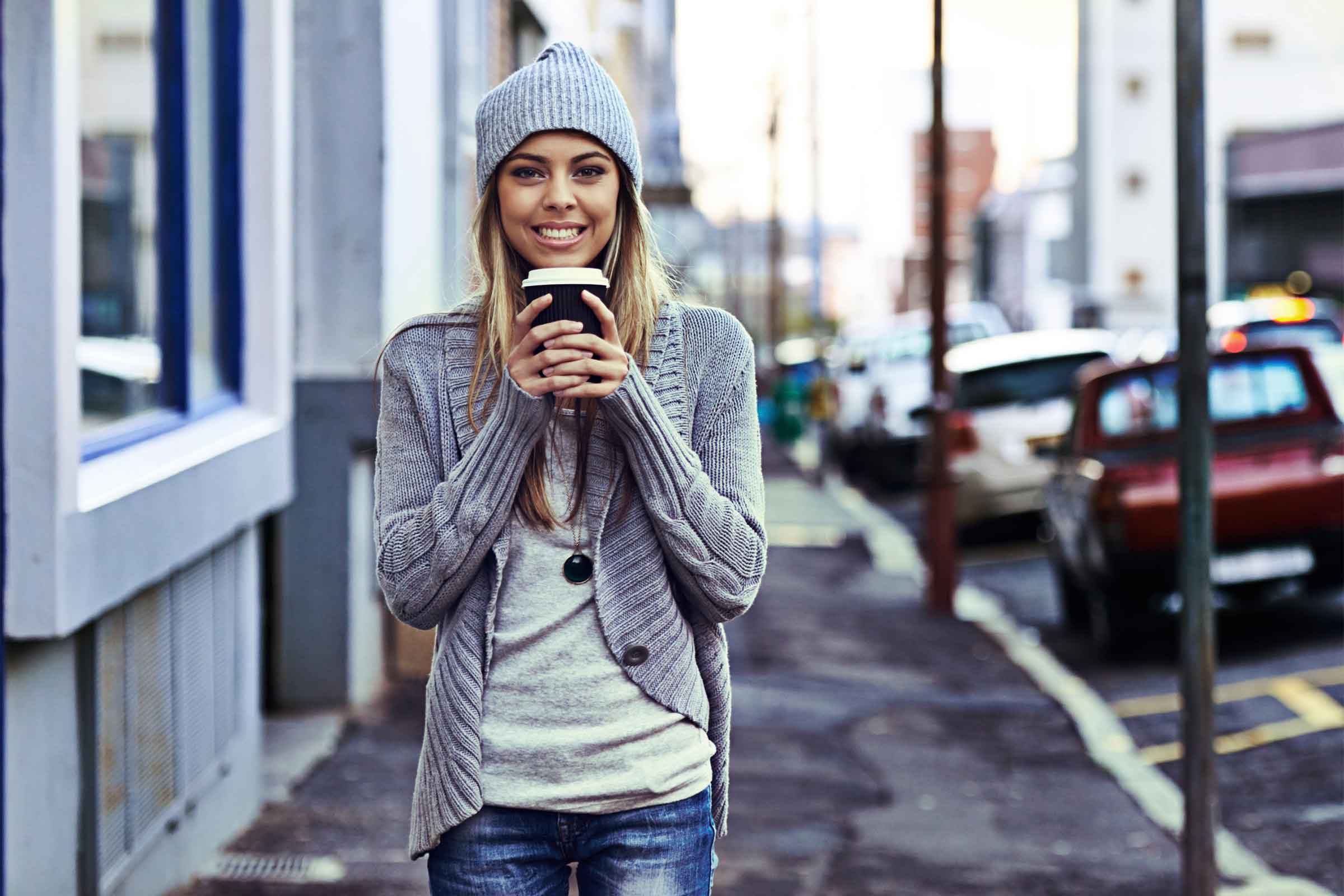
You have an afternoon java habit
When you’re feeling like you’re physically exhausted at bedtime, but can’t figure out why you’re unable to fall asleep, you may want to count the number of hours it’s been since your last caffeine fix. Many sleep experts recommend you quit drinking caffeinated beverages around 2 p.m., or at the very least, six hours before you plan to go to bed, since it takes about that long for your body to eliminate it. Caffeine can interfere with your sleep drive because it interrupts that biological process that happens late in the day as your body starts to wind down, preparing for slumber. If you’re not yet ready to go cold-turkey on your afternoon coffee habit, start off with a half-caffeinated cup for a week or two, and then switch to herbal tea. Don’t miss these other important health facts about coffee.

You’re headed to happy hour tonight
Having social plans after work can give you something to look forward to during a long stressful day. But if you have too many drinks, you’re likely to feel sleepy. That’s not only dangerous if you’re driving home afterward, but if your alcohol consumption makes you feel like falling into bed as soon as you get home, you’re likely to wake up in the middle of the night. Alcohol is sedating, and high amounts make you feel relaxed, but as your body withdraws from it, your heart rate increases, you get dehydrated, and you’ll have increased arousals later in the evening says Jose Colon, MD, a Florida-based sleep medicine specialist. Try to stick to one alcoholic beverage daily if you’re a woman (two if you’re a man), and sip a glass of water in between every drink to stay hydrated and help flush the alcohol from your system faster. For an alternative to happy hour, here are other little ways to connect with friends.
